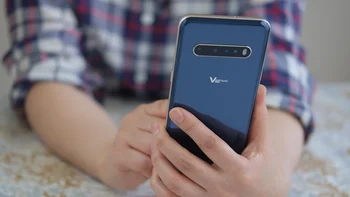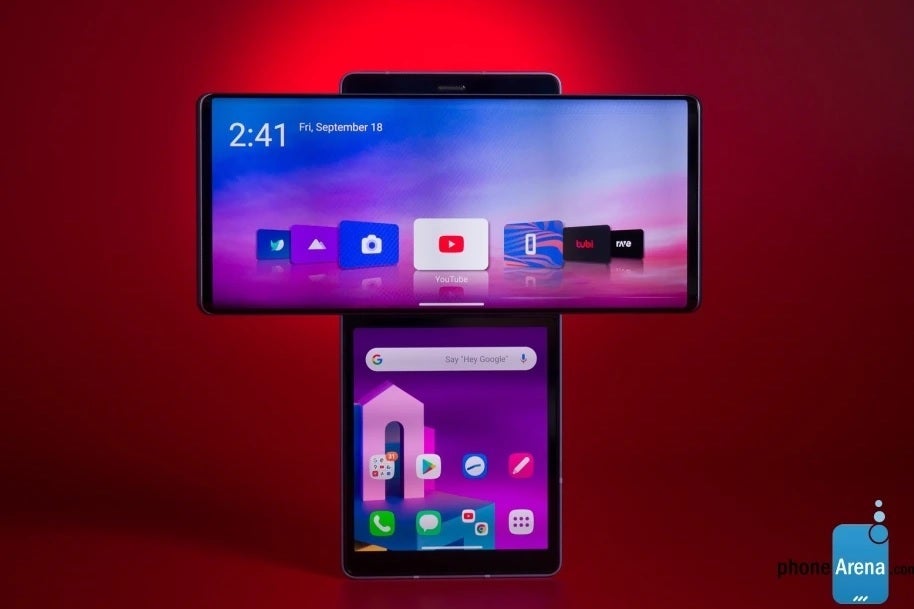It's official! LG drops out of the mobile phone business

LG officially announced this morning that it is leaving the mobile phone business. The company said that it will still look to unload its inventory of handsets. It also will offer service support and software updates for its existing devices which will last for a certain period of time depending on the region. The decision to drop out of the industry was approved today by LG's board of directors. Six years of losses has wiped approximately $4.5 billion off of LG's books
In a press release dated today, LG said that its "strategic decision to exit the incredibly competitive mobile phone sector will enable the company to focus resources in growth areas such as electric vehicle components, connected devices, smart homes, robotics, artificial intelligence and business-to-business solutions, as well as platforms and services." Throughout the process of closing the business, LG said that it will work with business partners and suppliers. As far as employees are concerned, decisions will be made at the local level.
LG would rather quit than fight
LG says that it will still work on mobile technologies. "Moving forward, LG will continue to leverage its mobile expertise and develop mobility-related technologies such as 6G to help further strengthen competitiveness in other business areas. Core technologies developed during the two decades of LG’s mobile business operations will also be retained and applied to existing and future products."

LG hoped that the Wing would differentiate the manufacturer from Samsung's fare
LG's involvement in the handset industry started before the rise of the smartphone. The company started out with a line of flip phones and in 2005 it released the VX-9800 clamshell. Yours truly owned this phone which featured an external display and an internal display. When the clamshell opened, the phone had a QWERTY keyboard. When closed, the device looked like a camera. The next year it launched a hybrid phone-MP3 player called the LG Chocolate.
In December 2006, one month prior to the introduction of the iPhone, LG announced the first touch screen cellphone, the LG Prada. In November 2007, the LG Voyager was released. Yours truly had this handset which featured a resistive touch screen that was difficult to navigate. It was the first feature phone to scrap the WAP browser for an HTML one and it included live television, two screens, and a QWERTY keyboard. For Verizon customers who wanted an iPhone, this was the device they purchased even though it was not a smartphone. Remember, at the time the iPhone was an AT&T exclusive.
The LG Optimus series was a line of smartphones created by LG that ran either Windows Mobile or Android. Over time, the Optimus G series was replaced by the new LG G2 and that model continued to be LG's flagship phone through the LG G8XThinQ. The latter offered an attachable second screen as an accessory. As LG continued to have a hard time topping its fellow South Korean manufacturer Samsung, it tried to find something different to catch the attention of consumers. An example of this was last year's LG Wing which came out of the box with a 6.8-inch display that rotates 90 degrees to reveal a secondary 3.9-inch screen.
The end of LG's mobile phone business means that the company's rollable phone will be scratched. The company said in a statement that the LG Rollable is no longer part of its product strategy. As recently as last month, rumors about the device were still spreading and a phone with the model number LM-R910N from LG had received certification for its use of Bluetooth 5.2. The device was supposedly going to (ahem) rollout with a 7.4-inch display and a smaller screen on the back. The introduction of the phone was said to be delayed due to problems with the rollable mechanism and questions about the durability of the device.
While LG expects to shutter its mobile phone business completely by July 31st, inventories of some phones might remain available past that date. The big question is who will end up with LG's 10% of the smartphone market in North America. On the continent, LG is third after Samsung and Apple. Considering that LG users are familiar with Android, we wouldn't be surprised to see Samsung grab much of LG's market share in the region. LG's global share of the smartphone market is only 2%. It delivered 23 million handsets last year compared to the 256 million shipped by Samsung.
LG tried to sell its smartphone business to Vingroupo based in Vietnam, but the two could not agree on the terms of a deal.













Things that are NOT allowed: